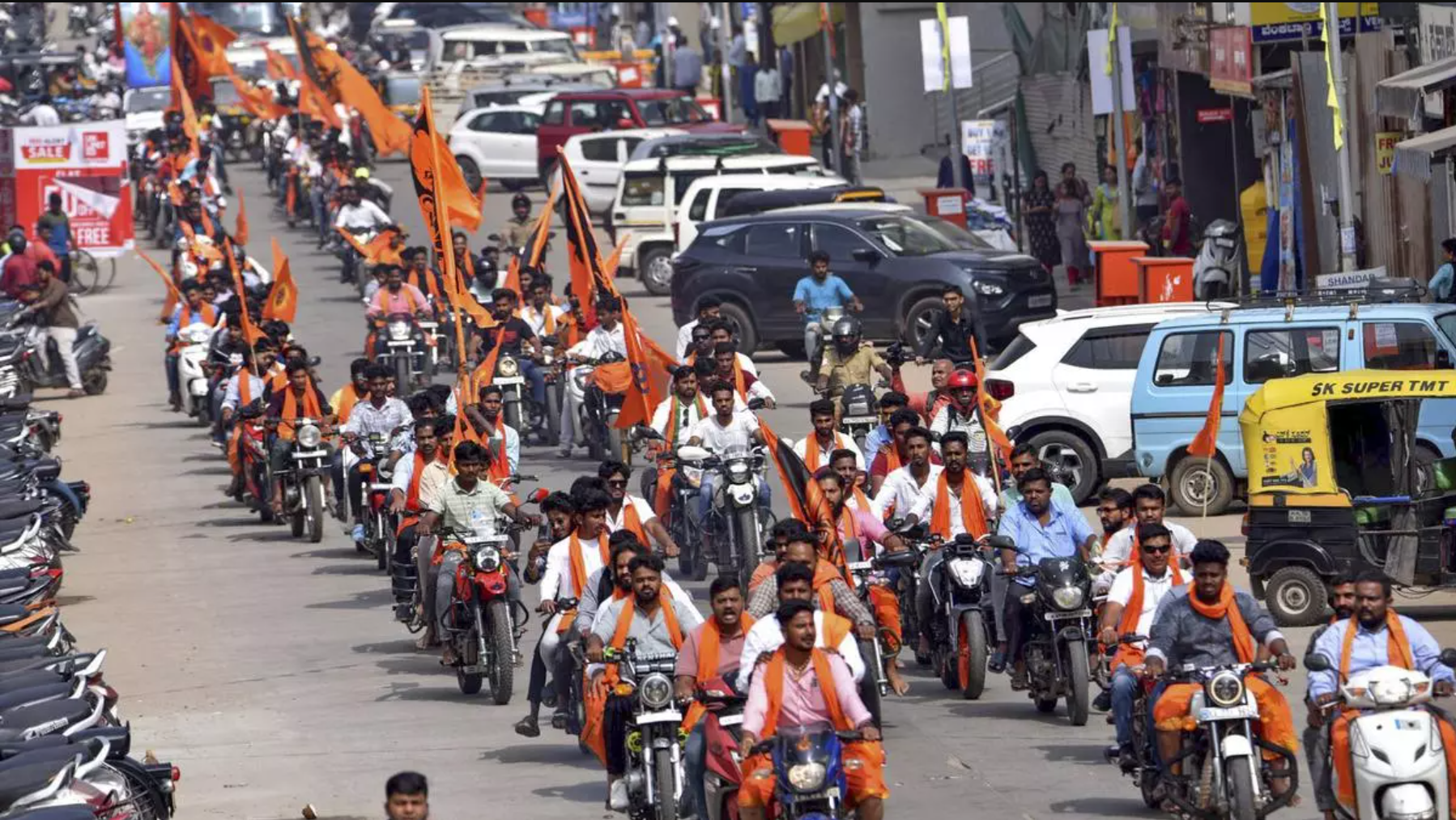Karnataka, the southern state that boasts of a rich history of social harmony and progressive movements, has witnessed a steady rise of Hindutva forces over the last few decades. The Bharatiya Janata Party (BJP), which espouses the ideology of Hindu nationalism, has emerged as the dominant political force in the state, winning three consecutive assembly elections since 2008 and sweeping the 2019 Lok Sabha polls.
The BJP’s success in Karnataka is not a recent phenomenon, but the culmination of a century-old trajectory of the growth of Hindutva in the region. Karnataka has been a crucial outpost for the Sangh Parivar, the network of Hindu nationalist organisations that includes the Rashtriya Swayamsevak Sangh (RSS), the ideological mentor of the BJP. The RSS has been active in Karnataka since the 1920s, and gained popular support among the Kannada-speaking Hindus, especially in the coastal districts, where it mobilised against the colonial and princely rule, as well as the Christian and Muslim minorities. The RSS also faced the wrath of the state when some of its members were arrested in connection with the assassination of Mahatma Gandhi in 1948.
The RSS and its affiliates gradually expanded their influence in other parts of Karnataka, mainly in the north-western and central regions, where they tapped into the grievances and aspirations of the Lingayat community, a dominant caste group that follows a reformist sect of Hinduism. The Lingayats, who constitute about 17% of the state’s population, have been the backbone of the BJP’s electoral base in Karnataka, along with the upper castes and the Brahmins. The BJP has also managed to attract sections of the backward castes, Dalits, and tribal people, by offering them political representation and welfare schemes, as well as appealing to their religious sentiments. The BJP has also been more popular than the opposition parties, such as the Congress and the Janata Dal (Secular), in the urban centres across the state, including Bengaluru, the IT hub and the state capital.
The BJP’s rise in Karnataka has been accompanied by an aggressive and relentless attack on the lives, livelihoods, and culture of the Muslim minority, which constitutes about 13% of the state’s population. The BJP and its allies have pursued a series of anti-minority policies and laws, such as banning cow slaughter, regulating inter-faith marriages, and curbing religious conversions. They have also incited communal violence, vandalised mosques, and imposed economic boycotts on Muslim traders. They have also targeted Muslim women’s dress code, such as the hijab, and opposed the use of loudspeakers for the Muslim call to prayer, or azan. These acts of Hindutva aggression are intended to marginalise and exclude Muslims from the increasingly Hinduised public spaces, and to assert the supremacy of the Hindu majority.
The BJP’s Hindutva agenda in Karnataka has not faced much resistance from the opposition parties, the civil society, or the media, which have either been co-opted, intimidated, or silenced by the ruling party. The BJP has also enjoyed the support of the dominant castes, classes, and sections of society, who have legitimised and mainstreamed the unconstitutional and undemocratic agendas of the Hindu nationalists. The BJP has also benefited from the charisma and popularity of its leaders, such as B.S. Yediyurappa, the former chief minister who resigned recently, and Narendra Modi, the prime minister who has a strong appeal among the urban and rural voters alike. The BJP has also exploited the weaknesses and divisions of the opposition parties, which have failed to offer a credible and coherent alternative to the BJP’s Hindutva politics .
The BJP’s stronghold in Karnataka is not only a matter of concern for the state’s secular and democratic fabric, but also for the national political scenario. Karnataka is often seen as the BJP’s “gateway” to south India, where the party has a fairly sparse presence compared to the north and the west. The BJP has been trying to replicate its Karnataka model in other southern states, such as Tamil Nadu, Kerala, Andhra Pradesh, and Telangana, by forging alliances with regional parties, mobilising Hindu voters, and polarising the electorate along communal lines. The BJP’s Hindutva project in Karnataka is also a part of its larger vision of transforming India into a Hindu nation, where minorities are reduced to second-class citizens, and dissent is crushed. The BJP’s Hindutva in Karnataka is not a fringe phenomenon, but a mainstream reality that needs to be challenged and resisted by all those who value the pluralism and diversity of India.



